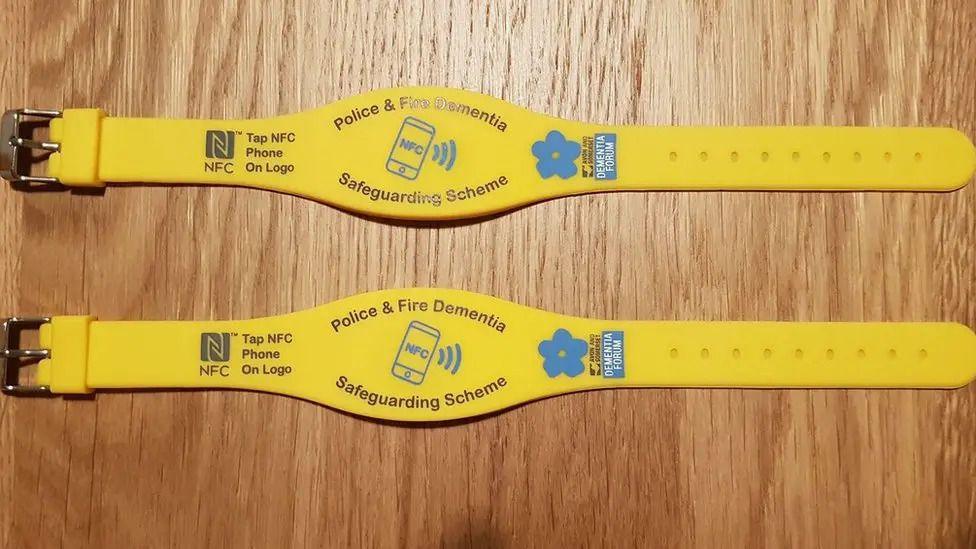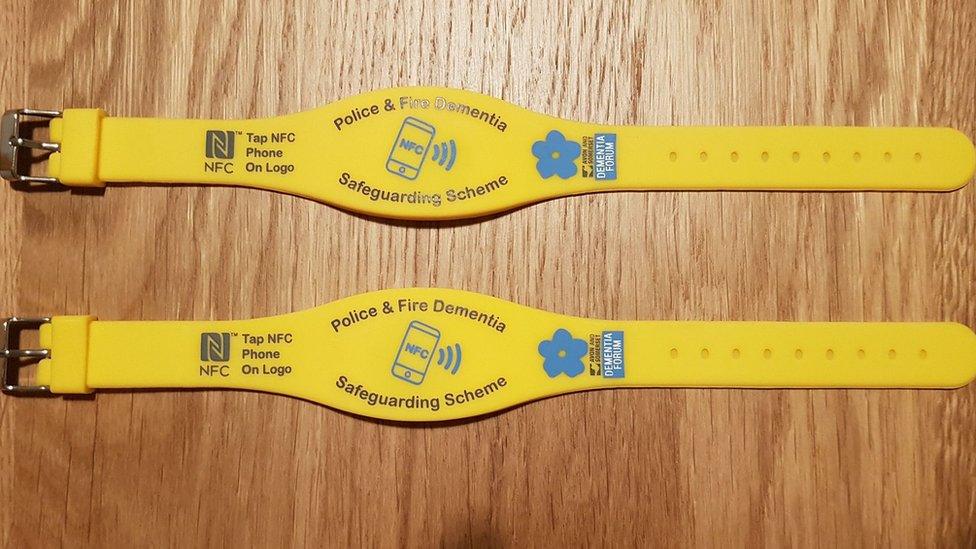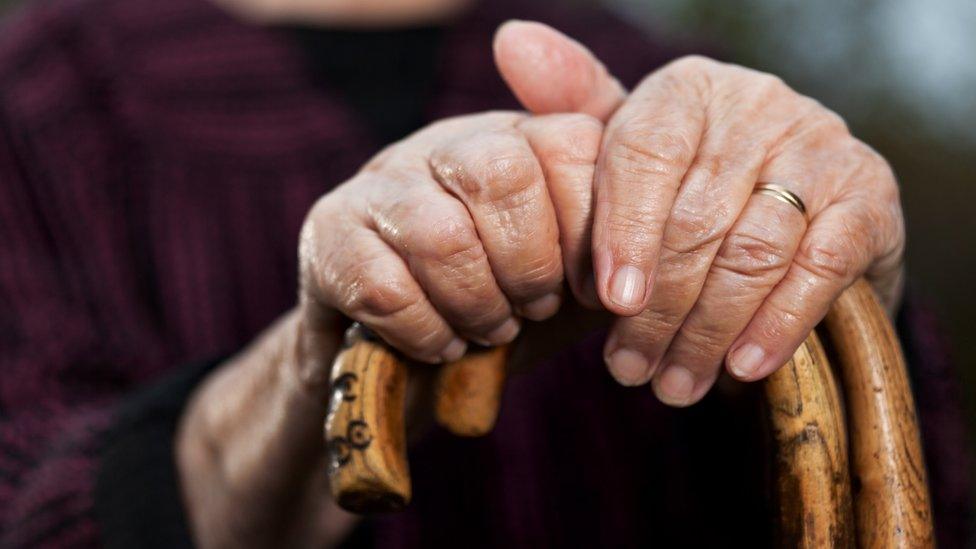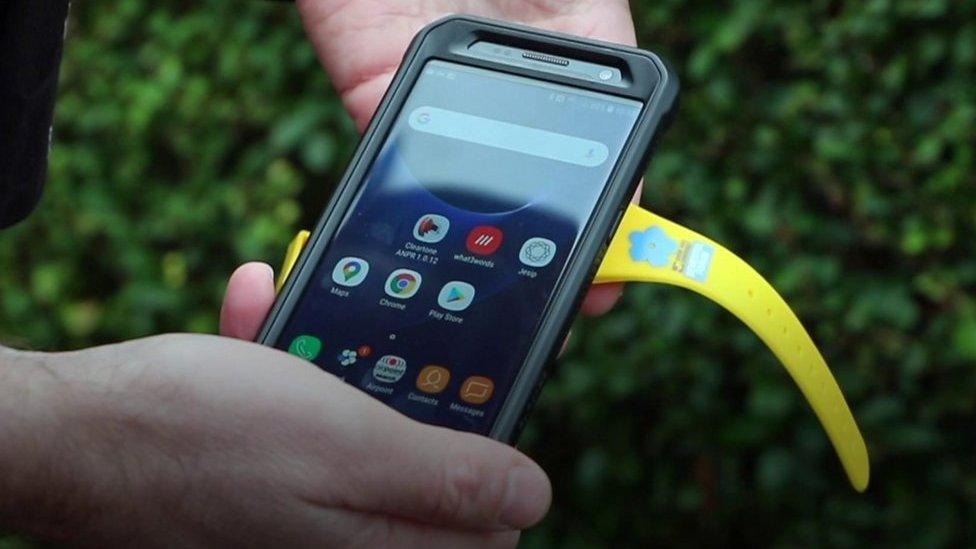Dementia project to expand with Bluetooth technology

The wristband scheme is nearly 10 years old
- Published
A pioneering wristband scheme to help people with dementia who go missing is to be expanded.
Avon and Somerset Police offers the wristbands, external for free to families, which can be scanned to reveal information about the wearer.
Now the wristbands will use Bluetooth technology, which will virtually "handshake" with nearby phones in a similar manner to Apple's AirTags.
The new Bluetooth wristbands will be made available from November.
Track wearer
When the wristbands interact with nearby mobile phones, their location is registered, allowing police to track the wearer if they go missing.
Unlike the GPS devices already in use which need regular charging, the battery on the Bluetooth wristbands will last three years.
The scheme is jointly funded by Bristol Water, Wessex Water and the Bristol Dementia Action Alliance.
It was launched in 2015 by Insp Stuart King in response to the amount of time he was spending on attending incidents looking for missing people.
"It's helping to protect vulnerable people in society, and it means we can concentrate resources on other areas of policing," he said.
"Usually when people go missing, we have to sit down with their families and ask people where they used to live.
"This can take a lot of time out of the search, but now we have all the information to hands using the forms that people complete to apply for the wristbands," he added.
Since the scheme was started, it has been taken up by other police forces across the UK, including in Wiltshire, Scotland, Lincolnshire and Gwent.
Insp King has also had enquiries about the scheme from the Navajo Nation Police in the USA.
Get in touch
Tell us which stories we should cover in Bristol
Follow BBC Bristol on Facebook, external, X, external and Instagram, external. Send your story ideas to us on email or via WhatsApp on 0800 313 4630.
- Published25 November 2020

- Published13 April 2022

- Published2 February 2024
